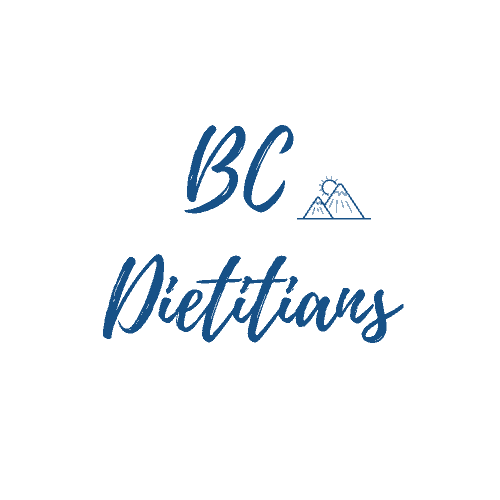Caffeine is a natural stimulant found in various plants, including coffee beans, cacao beans, guarana, and tea leaves. It acts on the central nervous system to increase alertness and reduce fatigue.
Beyond its effects on the nervous system, caffeine also impacts heart rate, digestion, and metabolism. It’s commonly consumed in coffee, tea, soft drinks, and energy drinks.
Read on to learn more about the impact Caffeine has on gut health and digestive symptoms for people with Irritable Bowel Syndrome (IBS) and Small Intestinal Bacteria Overgrowth (SIBO).

Zahra Tromsness, RD
Caffeine's Impact on IBS and SIBO
Caffeine, just like alcohol, could be a trigger for digestive symptoms.
In a study with more than 390 participants, 39% reported their IBS symptoms were linked to coffee consumption. There seems to be a connection between caffeine and IBS symptoms, such as abdominal pain, diarrhea, and gas, involves several factors.
Caffeine stimulates the gastrointestinal tract, leading to increased bowel movements, which can worsen symptoms for those with IBS-D (diarrhea-predominant IBS).
It also enhances the contraction of intestinal and colonic muscles, potentially causing stomach upset. Additionally, caffeine’s impact on mental health and anxiety may further influence IBS symptoms, although more research is needed in this area.
For individuals with SIBO, caffeine can also exacerbate symptoms.
The increased motility and potential irritation caused by caffeine can worsen SIBO-related issues, making it important to monitor and adjust your caffeine intake.
Coffee for IBS Clients
You can still enjoy coffee if you have IBS, but moderation and individual tolerance are key.
The general recommendation for caffeine intake is up to 400 mg per day (around 4 cups of regular coffee, 6oz of espresso OR 8 cups of black tea) for the general population, but those with IBS should tailor their intake to their personal tolerance levels.
The British Dietetic Association suggests limiting caffeine-containing drinks to no more than 3 cups per day. It is best to monitor your caffeine intake and your digestive symptoms and adjusting accordingly. If you enjoy coffee with milk and sweeteners, consider low FODMAP alternatives (ie. maple syrup, white or brown sugar, stevia) if you suspect they might be increasing your symptoms.
The Benefits of Reducing Caffeine
Gradually reducing caffeine intake can help manage IBS and SIBO symptoms.
Avoiding caffeinated drinks in the afternoon and evening can prevent sleep disturbances, which in turn can worsen digestive issues. If you decide to eliminate caffeine, do so gradually to minimize withdrawal symptoms like headaches and fatigue.
Can Coffee Cause Bloating?
Coffee can cause bloating due to several factors.
It can increase the production of stomach acid, which may lead to discomfort and bloating. Additionally, coffee stimulates your colon, potentially causing gas and bloating. The combination of caffeine, poor sleep, and anxiety can create a vicious cycle that exacerbates digestive issues.
Moreover, coffee can contain FODMAPs when mixed with high FODMAP ingredients like milk or certain sweeteners such as honey, coconut sugar, demerara sugar, agave syrup.
Black coffee is FODMAP-friendly, but the addition of high FODMAP components can trigger bloating and other symptoms in IBS patients.
Alternatives to Coffee
Decaf coffee is a viable alternative with a milder effect on gastrointestinal motility.
Green tea is another option, containing approximately 30 mg of caffeine per cup, or you can choose a decaffeinated version. Other IBS-friendly hot drinks include hot cocoa (with low FODMAP milk) and herbal teas.
It is worth noting that while decaf coffee reduces caffeine intake, it may still cause symptoms in some individuals due to other compounds in coffee. If decaf coffee still causes discomfort, consider exploring other alternatives.
How to Incorporate Coffee in Your Daily Routine
Avoiding caffeine-containing drinks past 12pm noon is generally a good habit to adopt, especially if you have IBS or SIBO.
Caffeine can interfere with your sleep cycle, and poor sleep can worsen digestive symptoms. By limiting caffeine to the morning hours, you can still enjoy its benefits without compromising your rest and overall digestive health.
Conclusion
Caffeine, found in coffee beans, cacao beans, tea leaves, and other plants, can trigger IBS and SIBO symptoms like loose stools, bloating and gas.
It can also worsen anxiety and impact sleep, creating a vicious cycle. While caffeine can be problematic for some, everyone’s tolerance is unique. Gradually reducing caffeine intake can help manage symptoms without causing withdrawal issues.
Remember, understanding how caffeine impacts your gut health is just one piece of the puzzle. By making informed choices and working with a healthcare professional, you can navigate your journey to gut wellness with confidence.
If you have IBS or SIBO and need personalized guidance on managing your caffeine intake and overall diet, feel free to reach out.
As a registered dietitian focusing on IBS and SIBO, I’m here to help you navigate your journey to better digestive health. Not sure where to start? Book a FREE discovery call with me.








Linda Thibeault
April 12, 2025 at 6:43 amHello Zahra! I’m so happy I found you . You have helped me to understand my symptoms but I will be needing more help. I will be connecting with you for a free 15 min session then maybe a few there on. I have Graves’ disease also gluten intolerance and pretty sure I have IBS . I also have diverticulitis . I am 63 You have given me hope I’m hardly eating at all. Something to talk about also in session . I feel I’m on the right track with your info and looking forward to consulting with you soon. Thank you so much !!
Have a lovely day🙂
Zahra Tromsness
April 13, 2025 at 3:02 pmHi Linda,
Thank you so much for your kind words—it truly means a lot to hear that my post gave you some clarity and hope. You’ve been carrying a lot, and I’m really glad you found your way here.
It sounds like your body has been through so much, and I’d be honored to support you on this next chapter. I’m looking forward to our free 15-minute call and hearing more about what’s going on so we can start putting some gentle, nourishing steps in place.
You’re absolutely not alone—and there is a way forward.
Add a comment